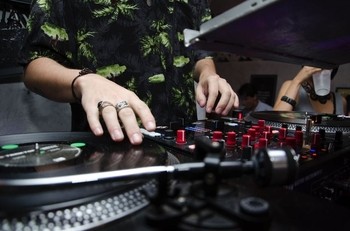
Your friends say that you have a knack for always knowing the perfect song for the moment, and that you’d make a great DJ. After thinking it over, you decide they’re right, and take the plunge to start out as an amateur DJ. Whether you want a piece of the $72 billion-a-year wedding industry, or you’re looking more to play in clubs and other venues, you’re going to need the right equipment before you can book a gig. Since it’s unlikely that you have an unlimited budget to begin this venture, here are the items you’ll need right from the start, and what you can upgrade to down the road.
Power Cords
No matter what venue you play, you have no guarantees about the setup you’ll encounter. Even if you inquire in advance about what to expect, things can change last minute, so you always need to be prepared. By providing your own power cords from a company like Americord, you can ensure you are never left without power, thus cancelling the show. Make sure to have at least one heavy-gauge extension cord that’s at least 50-feet long. Additionally, you’ll need at least one high-quality surge protector, plus some shorter basic extension cords to account for differences in stage setup. Even if you’re assured that these items will be provided for you, always, always have them in your go bag. In fact, use them only for DJing and never take them out.
Headphones
As you’re mixing the event, you’ll want to hear what it sounds like on a more detailed level than loudspeakers can provide. That’s why you need a pair of headphones from the very beginning of your stint as a DJ. Ultimately, any type of headphones are better than none, so if all you have at first is a pair of earbuds, that’s okay. Over time, though, you’ll want to upgrade to high-quality headphones that allow you to hear more detail, while also blocking out room sound as necessary. You may even want to consider a set of in-ear monitors, or IEMs, to give you greater flexibility and less bulk.
Mixer
A mixer is the heart of your setup for any gig you do. Starting out, you need to decide if you want to use a full-featured mixer that you can use with turntables and CD changers, or if you’re going to use a controller, which combines all the components and digitizes them. A controller has advantages over a traditional turntable and mixer setup, as it simplifies the cable connections you have to make, and provides more durability over its analog counterparts. Some DJs swear by the sound of actual turntables, though, so as you advance in your career, that may be something to move up to.
Experience
Now for something that money can’t buy: experience. No matter how nice your equipment is, your first few shows will probably be a little rough. Experience that helps you read the crowd and respond to the personality of the venue and the evening will come with time. In the meantime, make sure to set yourself up for success by having the best equipment you can afford so that as experience does come, you’re ready to excel in your career.
